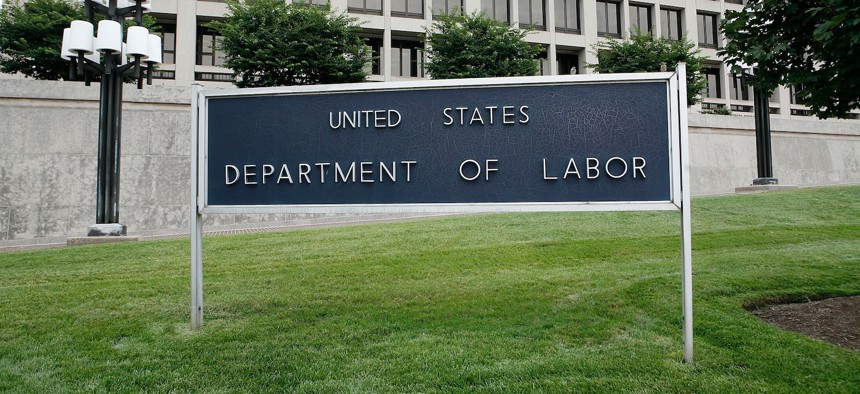
Alex Wong/Getty Images
The Labor Department wants Congress to help to fix unemployment insurance tech and delivery
Among the asks: fund the program adequately, the Labor Department says.
The Labor Department has a new “transformation plan” to shore up the unemployment insurance system for the next crisis after the pandemic exposed its weaknesses. It says it will need the help of Capitol Hill to sufficiently fund the program, make reforms to include workers currently not eligible for jobless aid and more.
States struggled to respond when the pandemic hit in 2020 because of low levels of administrative funding and antiquated IT systems. Early directives from Congress pushed states to implement new programs to cover workers otherwise not included in jobless aid, like independent contractors, while also confronting ballooning numbers of fraudulent claims coming into the system.
The problems landed the jobless aid system on the Government Accountability’s High Risk List in a rare off-cycle update. This plan is meant to address GAO recommendations.
Despite the problems, over 53 million got benefits during the pandemic, and the system put an estimated $880 billion back into the economy, according to the department, which argues in the plan that lawmakers have to seize on the strong economy to bolster the program for the next downturn.
The ask comes as the department stares down the end of its funding to modernize the program given as part of the American Rescue Plan Act. The Labor Department originally got $2 billion to use for fraud prevention, equity and the timely payment of benefits, although lawmakers cut that in half last year. Last fall, the department confirmed that it had allocated nearly all of its funding from ARPA.
One major request from the department to lawmakers is to fund the program adequately.
“States will eventually exhaust ARPA funds and encounter the same scarcity of federal administrative funds that has defined the last few decades,” the plan reads.
The department uses state information to distribute the funds it gets according to state workloads, but Congress consistently gives less than is needed, the department says. Funding is also generally tied to the volume of claims, meaning that states get less when the economy is good — which can leave them in catch-up mode when the economy dips.
The department also says that Congress needs to put forward “comprehensive UI reform” including a federal floor on eligibility rules, “adequate” benefits in all states, coverage for workers not currently eligible for the program, such as independent contractors, and more.
“Essential segments of the U.S. workforce remain excluded from the UI program, and in several states the amount of UI benefits falls short of sustaining an individual during a comprehensive job search,” the plan states.
Another ask: better enforcement options for the Labor Department as it oversees a program delivered by state agencies. As Nextgov/FCW has previously reported, the department currently has limited options to compel states to respond to problems or comply with civil rights or access protections.
Other requests for Congress include requirements for states to use certain databases to cross-check incoming benefit claims to ensure that they’re not fraudulent, as well as the ability for states to keep a cut of recovered claims paid out to fraudsters to use for program integrity. The department also asks lawmakers to stabilize the funding of the state UI trust funds that fund benefits.
House Republicans and the top Republican and Democrat on the Senate Finance Committee have backed legislative proposals or frameworkers largely focused on preventing and detecting fraud. A bicameral pair of Democrats have also introduced a proposal to cover self-employed workers and others left out of the current system, establish a benefits floor across states and more. It's not clear whether there's a bipartisan constituency in Congress for legislation to transform UI delivery, but program leaders in the department are hoping a bill can pass.
“Today’s strong economy gives Congress, the department and states the opportunity to transform the UI system before the next crisis,” the department’s plan reads. “A lack of meaningful action now to address the UI system’s major vulnerabilities puts us all at risk when the next recession hits.”







